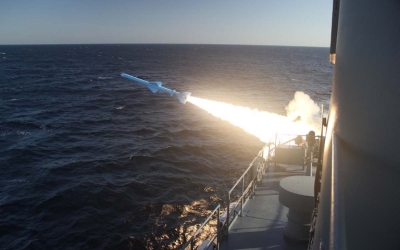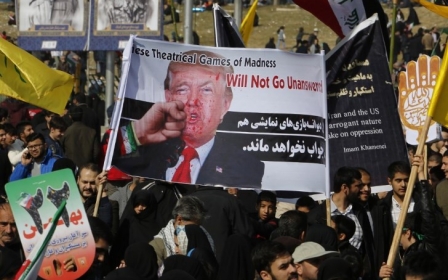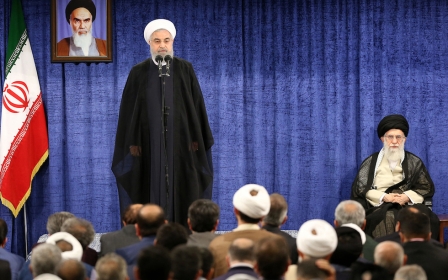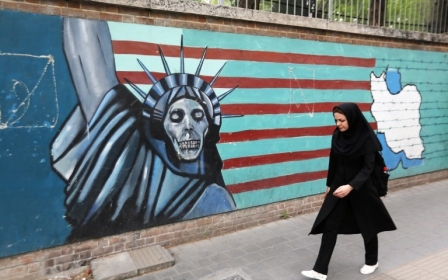Iran's oil minister blames US for market tensions
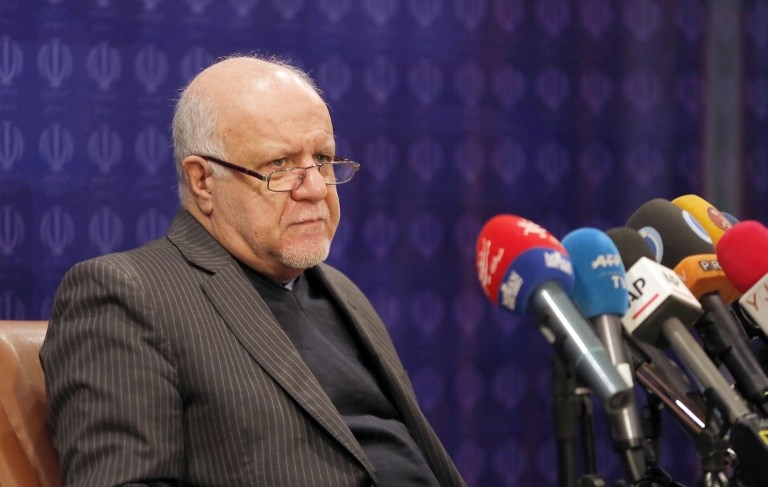
Iranian Oil Minister Bijan Zanganeh said on Saturday that frequent US comments about oil prices had created market tensions, the ministry's news website SHANA reported.
President Donald Trump, who has made the US economy one of his top issues, has repeatedly tweeted about oil prices and the Organization of the Petroleum Producing Countries (OPEC). He has expressed concern about higher prices, including last month and ahead of OPEC's meeting in December.
"Americans talk a lot, and I advise them to talk less. They caused tensions in the oil market for over a year now, and they are responsible for it, and if this trend continues the market will be more tense," SHANA quoted Zanganeh as saying.
US crude futures briefly hit a 2019 high on Friday, later retreating along with benchmark Brent as worries about the global economy and robust US production put a brake on prices, Reuters reported.
New MEE newsletter: Jerusalem Dispatch
Sign up to get the latest insights and analysis on Israel-Palestine, alongside Turkey Unpacked and other MEE newsletters
Still, oil prices have surged to their highest levels in months, with West Texas Intermediate rising above $58 per barrel and Brent trading north of $67. The instability in Venezuela and growing evidence of a slowdown in US shale have pushed prices up, OilPrice.com said on Friday.
OPEC and its allies including Russia, an alliance known as OPEC+, agreed last year to cut production, partly in response to increased US shale output.
Washington granted waivers to eight major buyers of Iranian oil after the US reimposed sanctions on Iran's oil sector in November, following its withdrawal from the 2015 Iran nuclear deal.
The very large Japanese crude carrier Kisogawa was loading crude oil at Iran’s Kharg Island for what S&P Platts reported on Friday would apparently be the final shipment of Iranian oil to Japan before its six-month sanctions waiver from the US expires, IntelliNews reported on its website.
Whether the tanker will be back for more Iranian oil in the foreseeable future may depend on whether Tokyo can negotiate an extension of the waiver from the Trump administration.
Zanganeh said: "We do not know whether US waivers will be extended or not; we will do our job, but they say something new every single day."
Zanganeh was speaking at a news conference ahead of the planned inauguration on Sunday of four development phases at South Pars, the world’s largest gas field, by President Hassan Rouhani.
He said Iran had invested $11bn to complete the phases 13 and 22-24 of the giant field, which Tehran shares with Qatar, and expected to operate 27 phases by next March, SHANA reported.
France's Total and China National Petroleum Corp (CNPC) suspended investment in phase 11 of South Pars last year after the US threatened to impose sanctions on companies that do business in Iran.
Still, Zanganeh said talks with CNPC were continuing.
"Negotiations are ongoing. A senior delegation from China is due to come to Iran for talks. They have promised to come to Iran soon," said Zanganeh, according to the semi-official news agency ISNA.
Middle East Eye delivers independent and unrivalled coverage and analysis of the Middle East, North Africa and beyond. To learn more about republishing this content and the associated fees, please fill out this form. More about MEE can be found here.


